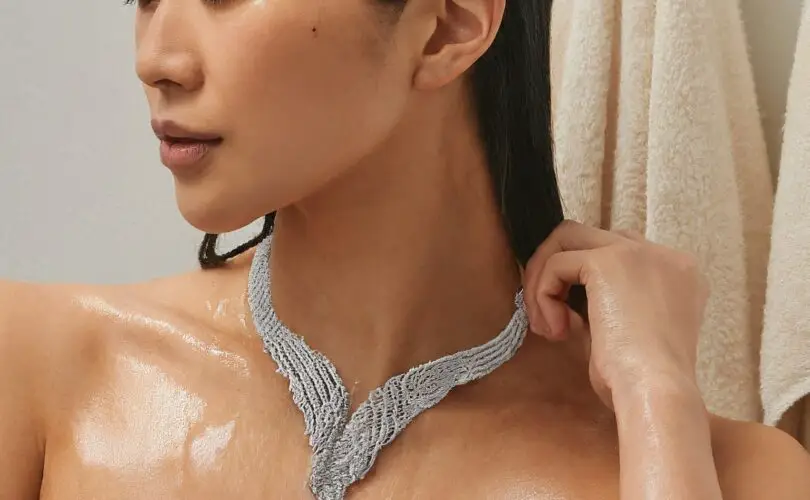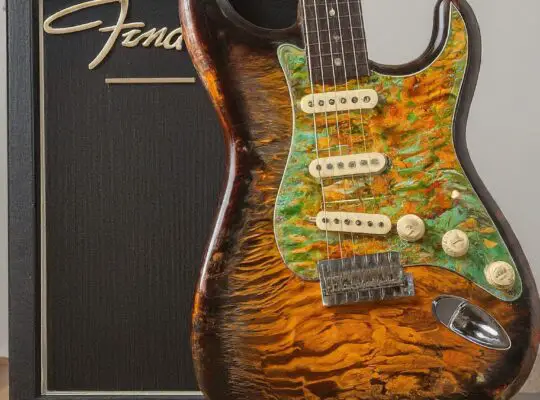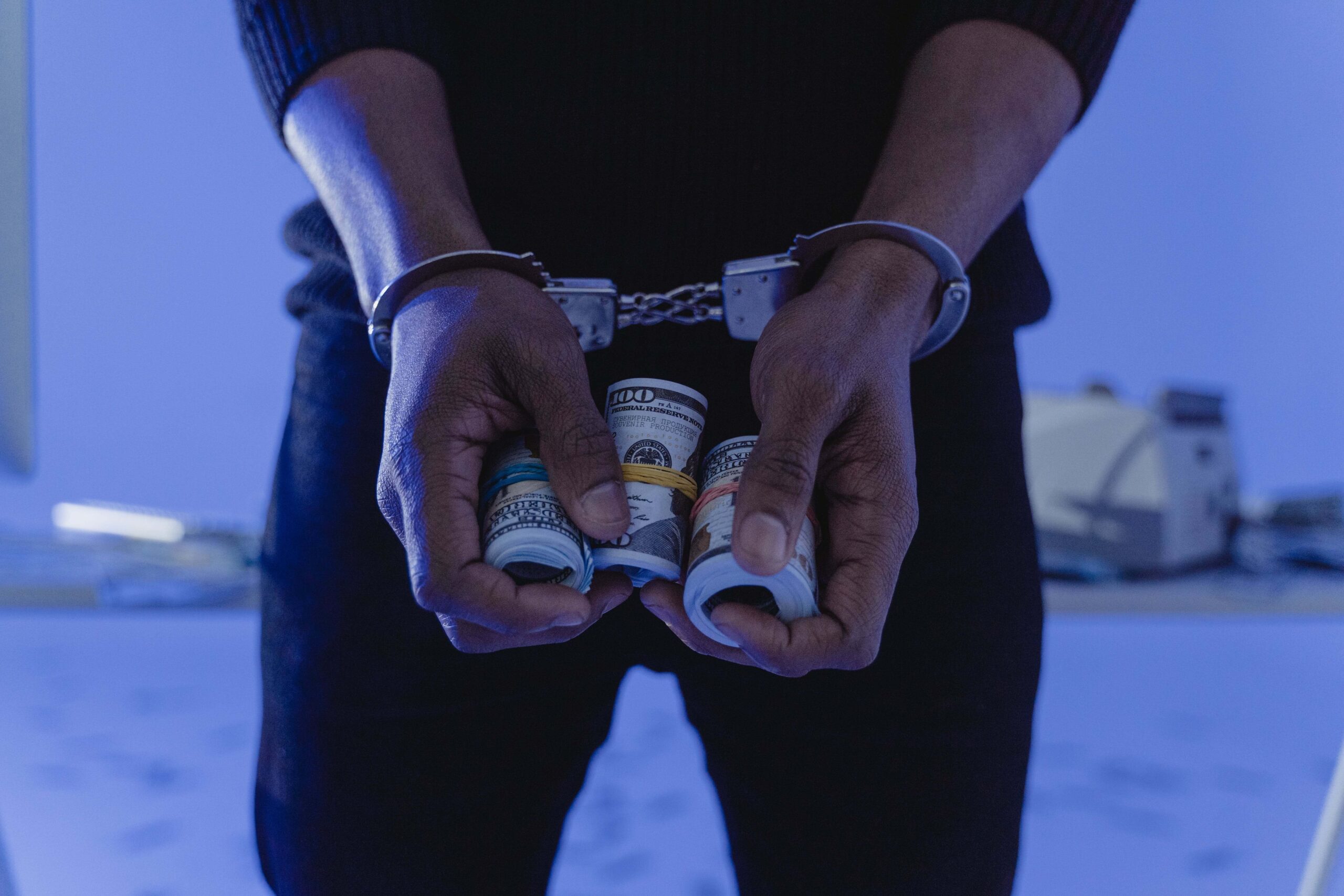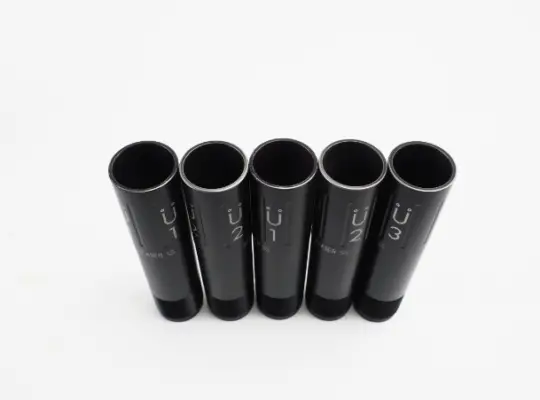White gold is an alloy of gold and other metals like silver, palladium, or nickel. It is a popular choice for jewelry because of its elegant and modern appearance. The distinctive color, resembling platinum or silver, that it possesses is due to the addition of other metals. Naturally, pure gold is yellow. It is the addition of the alloys that creates a beautiful white hue.
A key property of white gold and perhaps what makes it to be known is its durability and strength. The alloy used in white gold makes it more resistant to scratches and dents compared to pure gold. But, not that this does not mean that it is completely scratch-proof, it can still show signs of wear over time.
Can You Shower with White Gold
While it is designed to be durable, white gold is indeed susceptible to damage and tarnish. When it is exposed to high levels of moisture, soap, and other chemicals found in shower water, it becomes dull and loses its shine. The harsh chemicals found in some shampoos, conditioners, and body washes also do manage the metal and any gemstone set in the jewelry.
In case the white gold contains gemstones, they might be affected by prolonged exposure to water. Stones like pearls or opals are delicate and easily damaged when exposed to water and soap.
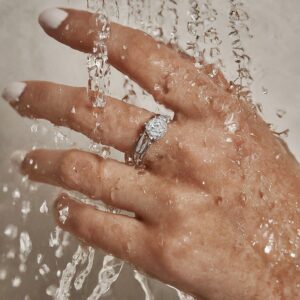
So, can you shower with white gold? Yes, technically you can shower with white gold although it is not recommended. The reason why it is not recommended, it’s because factors, other than water, can harm the metal. For instance, soaps and shampoos contain abrasive ingredients that scratch or dull the gold. Hot water and steam weaken gemstone settings, potentially causing stones to loosen or fall out. Also, with most white gold being plated with rhodium for its bright white color, the plating wears off as a result of frequent exposure to water and chemicals.
Considerations for Showering with White Gold
Among the things that need to be considered before showering with white gold is the gold’s quality. Quality is what determines the ability of the gold to withstand exposure to water. Higher-quality white gold alloys are more resistant to tarnish and damage compared to lower-quality alloys.
The presence of gemstones in the white gold jewelry is another factor. With certain gemstones being more delicate, they can easily be damaged by water and soap. In case the jewelry contains gemstones, it is best to err on the side of caution and remove them before taking a shower.
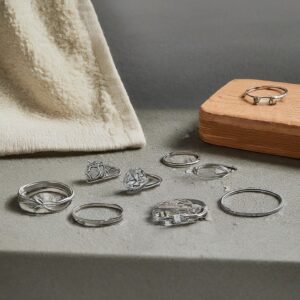
The frequency and duration of your showers also impact the condition of the white gold jewelry. Taking long in hot showers each day leads to prolonged exposure to steam and water, accelerating the tarnishing process. On the other hand, shorter and less frequent showers have a lesser impact on your jewelry.
Tips on How to Take Care of White Gold Jewellery
The best and most effective way of ensuring the longevity of white gold is removing it before showering or getting engaged in water activities. Some other tips are:
- Regular cleaning – Clean the white gold regularly with a soft cloth to remove any dirt or oils. While doing so, avoid using harsh chemicals or abrasive materials as they scratch the metal.
- Storage – When not wearing white gold, store it in a jewelry box or a soft pouch. Doing this will protect it from dust, moisture, and scratches. Also, keep each piece of jewelry separate in order to prevent them from tangling or scratching each other.
- Avoiding contact with chemicals – Avoid exposing the white gold to harsh chemicals like chlorine, bleach, or cleaning agents. Such chemicals damage the metal and result in it being tarnished.
- Professional Maintenance – Periodically take the white gold to a professional jeweler for maintenance and inspection. They get to clean, polish, and check for any loose gemstones or damaged prongs.
- Remove prior to physical activities – Before indulging in physical activities, remove your white gold jewelry. This is especially so if the activity involves water, such as swimming, showering, or washing dishes.
Possible Alternatives
In case you prefer wearing jewelry in the shower or during water activities, there are alternative options to consider.
Among the options is choosing jewelry made from materials that are more resistant to water. Examples of such materials are platinum and stainless steel. The advantage of the materials is that they are durable and withstand exposure to water without tarnishing or losing their shine.
Related Article: How to Detect Gold Without A Metal Detector
Opting for gold-plated or silver jewelry that can be worn temporarily during showers or water activities is another alternative. These pieces are typically more affordable and provide a similar aesthetic to white gold without the risk of damage.
White Gold Jewellery Cleaning Process
Regular cleaning of white gold is crucial in maintaining the shine and luster. The steps of cleaning are:
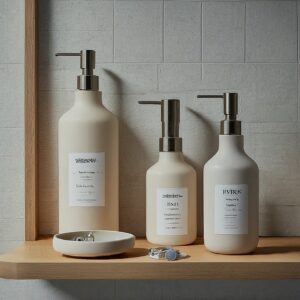
- Preparing the cleaning solution – In a small bowl or sink, mix a few drops of mild dishwashing liquid with warm water.
- Soaking the jewelry – Place the white gold in the cleaning solution and let it soak for 15-20 minutes. This assists in loosening any dirt or debris.
- Gentle scrubbing – Use a soft-bristle toothbrush or a jewelry brush to gently brush the jewelry. While scrubbing, focus on hard-to-reach areas and crevices. Also, be careful not to apply too much pressure as it can scratch the metal.
- Rinsing thoroughly – Rinse the jewelry under warm running water to remove any remaining soap or cleaning solution. Make sure that all traces of the cleaning solution are removed.
- Drying and polishing – Pat the jewelry dry with a clean, soft cloth. In case you desire to use a jewelry polishing cloth, gently buff the surface of the white gold. This will restore its shine.
Common White Gold Misconceptions
White gold is pure gold – White gold is not pure gold, it is an alloy of gold and other materials.
White gold never tarnishes – Despite being more resistant to tarnish compared to pure gold, white gold can still tarnish over time. This is so if it has been exposed to chemicals or moisture.
All white gold alloys are the same – White gold alloys vary in quality and composition with higher-quality alloys being more resistant to tarnish and damage.
White gold is hypoallergenic – While the gold is generally hypoallergenic, some people might experience allergic reactions to certain alloys such as nickel used in the jewelry.
Final Remarks
While it is technically possible to shower with white gold jewelry, it is not recommended. Exposure to soap, chemicals, and moisture damages and tarnishes the metal and any gemstones in it. In order to ensure the longevity and beauty of your white gold jewelry, it is best to remove it before showering or engaging in water activities.

